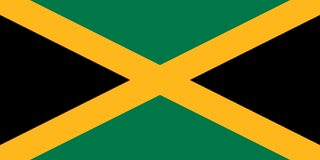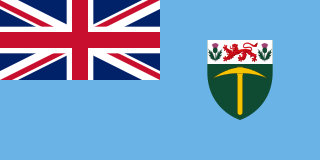
The 1964 Summer Paralympics, originally known as the 13th International Stoke Mandeville Games and also known as Paralympic Tokyo 1964, were the second Paralympic Games to be held. They were held in Tokyo, Japan, and were the last Summer Paralympics to take place in the same city as the Summer Olympics until the 1988 Summer Paralympics.

The medal table of the 2000 Summer Paralympics ranks the participating National Paralympic Committees (NPCs) by the number of gold medals won by their athletes during the competition. This was the eleventh Summer Paralympic Games, a quadrennial competition open to athletes with physical and intellectual disabilities. The Games were held in Sydney, Australia, from October 18 to October 29, 2000, the first time they had been held in the southern hemisphere. With 3,843 athletes taking part in the 18 sports on the programme, the Games were the second largest sporting event ever held in Australia. The location and facilities were shared with the largest event, the 2000 Summer Olympics, which concluded on 1 October. The Games set records for athlete and country participation, tickets sold, hits to the official Games website, and medals on offer.

The United States competed at the 1968 Summer Paralympics in Tel Aviv, Israel from November 4 to 13, 1968. The team finished first out of the twenty-eight competing nations in the medal table and won ninety-nine medals: thirty-three gold, twenty-seven silver and thirty-nine bronze. Eighty-two American athletes took part; fifty-three men and twenty-nine women.

Australia has participated officially in every Paralympic Games since its inauguration in 1960 except for the 1976 Winter Paralympics.

Finland competed at the 1976 Summer Paralympics in Toronto. The country was represented by 50 athletes competing in archery, athletics, dartchery, swimming, table tennis, volleyball, weightlifting and wheelchair basketball.

The 21st International Stoke Mandeville Games, later known as the 1972 Summer Paralympics was an international multi-sport event held in Heidelberg, West Germany, from August 2 to 11, 1972, in which athletes with physical disabilities competed against one another. The German Disabled Sports Association planned to stage the Games in Munich following the 1972 Olympic Games, however the Olympic village in Munich was designated to be closed and converted into private apartments. The organisers tried to arrange for alternative accommodation for the athletes but when this was not possible the city of Heidelberg stepped in with an invite to stage the Games at the University of Heidelberg's Institute for Physical Training.
Zipora Rubin-Rosenbaum is an Israeli athlete who has won 31 Paralympic medals. She has represented Israel at the Summer Paralympic Games seven times and has competed in athletics, swimming, table tennis, and wheelchair basketball at the Games.

Roberto Marson was an Italian multisport athlete who competed at the Summer Paralympics on four occasions and won a total of 26 Paralympic medals. He lost the use of his legs when a pine tree he was chopping down fell on his back.

Great Britain was one of twenty-eight nations to send athletes to the 1968 Summer Paralympics in Tel Aviv, Israel from November 4 to 13, 1968. The team finished second in the medal table and won sixty-nine medals: twenty-nine gold, twenty silver and twenty bronze. Athletes from the whole United Kingdom, including Northern Ireland, were able to compete for the team. Seventy-five British athletes took part in the Games; fifty-one men and twenty-four women.

Israel was the host nation of the 1968 Summer Paralympics in Tel Aviv. The Israeli team finished third in the medal table and won sixty-two medals: eighteen gold, twenty-one silver and twenty-three bronze. Over 750 athletes from 28 nations took part in the Games; the Israeli team included 53 athletes, 37 men and 15 women.

Jamaica was one of twenty-eight nations that competed at the 1968 Summer Paralympics in Tel Aviv, Israel from November 4 to 13, 1968. The team finished fourteenth in the medal table and won a total of five medals; three gold, one silver and one bronze. Eleven athletes represented Jamaica at the Games; seven men and four women.

New Zealand competed at the 1968 Summer Paralympics in Tel Aviv, Israel. It was the nation's first delegation to the Paralympics. The team finished eighteenth in the medal table and won a total of 4 medals; 1 gold, 2 silver and 1 bronze.

South Africa was one of twenty-eight nations that sent athletes to compete at the 1968 Summer Paralympics in Tel Aviv, Israel from 4 to 13 November 1968. The team finished tenth in the medal table and won a total of twenty-six medals; nine gold, ten silver and seven bronze. Eight South African athletes competed at the Games; five men and three women.

Japan competed at the 1968 Summer Paralympics in Tel Aviv, Israel from November 4 to 13, 1968. The team finished sixteenth of the twenty-eight competing nations in the medal table and won a total of twelve medals; two gold, two silver and eight bronze. Forty-eight Japanese athletes took part in the Games; forty-one men and seven women.

Ireland was one of twenty-eight nations to send a delegation to compete at the 1968 Summer Paralympics in Tel Aviv, Israel from November 4 to 13, 1968. The team finished nineteenth in the medal table and won a total of nine medals; four silver and five bronze. Seven Irish athletes competed at the Games, five men and two women.

Spain was one of twenty-eight nations that competed at the 1968 Summer Paralympics in Tel Aviv, Israel from November 4 to 13, 1968. The team finished twenty-first in the medal table and won four medals: three silver and one bronze, all in swimming events. The Spanish team contained eleven athletes; nine men and two women.

Sweden was one of twenty-eight nations that sent a delegation to the 1968 Summer Paralympics in Tel Aviv, Israel from November 4 to 13, 1968. The team finished seventeenth in the medal table and won eleven medals: one gold, six silver and four bronze. Thirty-two Swedish athletes took part in the Games; twenty-seven men and five women.

Rhodesia competed at the 1968 Summer Paralympics in Tel Aviv, Israel from 4 to 13 November 1968. The team ranked eleventh out of the twenty-eight competing nations in the medal table and won a total of twenty medals; six gold, seven silver and seven bronze. Rhodesia competed at the Paralympics in 1968 and in 1972 despite being excluded from the Summer Olympic Games in those years.

The 13th International Stoke Mandeville Games, later known as the 1964 Summer Paralympics, was an international multi-sport event held in Tokyo, Japan, from November 3 to 12, 1964, in which paraplegic and tetraplegic athletes competed against one another. The Stoke Mandeville Games were a forerunner to the Paralympics first organized by Sir Ludwig Guttmann in 1948. This medal table ranks the competing National Paralympic Committees (NPCs) by the number of gold medals won by their athletes.
Ruth Lamsbach is a German paralympic athlete and multiple medalist at the Paralympic Games.

















